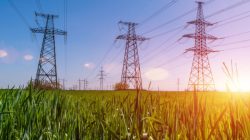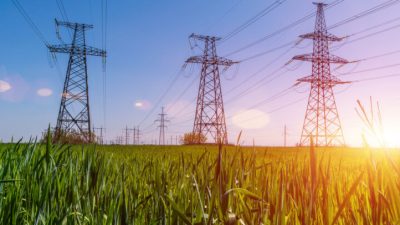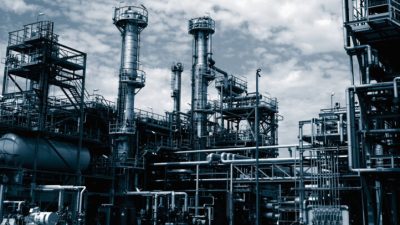The U.S. economy is not isolated from the rest of the world. In fact, it is deeply interconnected with global markets, and various global events can have significant impacts on its economic performance. From trade policies to technological advancements, climate change, and geopolitical tensions, these factors shape the economic landscape in complex ways. Understanding how global events influence the U.S. economy is essential for policymakers, businesses, and individuals alike.
The Role of Emerging Markets
Emerging markets play a crucial role in shaping the U.S. economy. These economies, characterized by rapid growth and increasing global influence, offer both opportunities and challenges for American businesses and investors. According to data from the International Monetary Fund, emerging markets accounted for nearly 60% of global GDP growth in 2019, highlighting their importance in driving economic expansion.
For the U.S., emerging markets represent a vast consumer base and potential investment opportunities. As these markets grow, they contribute to the overall health of the global economy, which in turn affects the U.S. economy. However, investing in emerging markets also comes with risks, such as political instability, regulatory challenges, and economic volatility.
Key points about emerging markets:
– They contribute significantly to global GDP growth.
– Offer high returns due to strong economic growth and expanding middle-class populations.
– Present risks such as political instability and inadequate regulatory frameworks.
Technological Advancements and Their Impact
Technological advancements, particularly in artificial intelligence (AI) and automation, are reshaping the U.S. economy. These innovations are transforming industries, improving efficiency, and creating new opportunities for workers. According to a report by McKinsey, automation could increase global productivity by up to 1.4% annually, leading to significant economic gains.
In the U.S., automation is expected to affect around 50% of all work activities. While this may lead to job displacement in some sectors, it also creates opportunities for workers to upskill and engage in higher-value tasks. AI technologies can also improve decision-making processes and enhance the effectiveness of government policies.
Key points about technological advancements:
– AI and automation are transforming industries and improving efficiency.
– They create new opportunities for workers to upskill and engage in higher-value tasks.
– AI-powered analytics can help policymakers address societal challenges more effectively.
Trade Policies and Economic Implications
Trade policies have a profound impact on the U.S. economy and politics. Trade deficits and protectionism are key issues that influence economic growth and political discourse. The U.S. has experienced persistent trade deficits, particularly with countries like China, leading to concerns about job losses and the erosion of domestic industries.
Protectionist measures, such as tariffs and import quotas, aim to shield domestic industries from foreign competition. While proponents argue that these measures can protect jobs and promote economic growth, critics warn that they can lead to retaliatory actions from trading partners, resulting in higher prices for consumers and reduced export opportunities for American businesses.
Key points about trade policies:
– Trade deficits and protectionism are central to economic and political discussions.
– Protectionist measures can lead to retaliatory actions and higher consumer prices.
– Balancing domestic industry protection with international trade relationships is crucial.
Climate Change and Economic Challenges
Climate change poses significant challenges to the U.S. economy. Carbon emissions, primarily from the burning of fossil fuels, are a major contributor to climate change. The U.S., as one of the largest emitters of carbon dioxide, has a critical role to play in reducing its emissions.
Promoting renewable energy sources, such as solar and wind power, is essential for mitigating climate change. Investing in renewable energy not only helps reduce carbon emissions but also has the potential to create jobs and boost economic growth. According to a study by the International Renewable Energy Agency, the renewable energy sector employed over 11 million people globally in 2018.
Key points about climate change:
– Carbon emissions are a major contributor to climate change.
– Renewable energy sources can reduce emissions and create jobs.
– Transitioning to renewable energy enhances energy security and aligns with international efforts like the Paris Agreement.
Geopolitical Tensions and Economic Effects
Geopolitical tensions have far-reaching implications for the U.S. economy. When tensions rise between countries, trade barriers such as tariffs and sanctions are often implemented, disrupting the flow of goods and services. This can lead to higher prices for consumers and reduced access to foreign markets for American businesses, ultimately affecting economic growth.
Furthermore, geopolitical tensions can directly impact the energy sector. Instability in oil-rich regions can lead to price volatility, affecting the U.S. economy. The United States, as a major consumer and producer of energy, is particularly vulnerable to these fluctuations.
Key points about geopolitical tensions:
– Geopolitical tensions can disrupt global trade and lead to higher consumer prices.
– Energy price volatility affects the U.S. economy.
– Geopolitical conflicts shape U.S. foreign policy and public opinion.
The Global Interconnectedness of Economies
The U.S. economy is deeply interconnected with other global economies. Studies show that U.S. GDP growth and inflation move in parallel with other countries, with average correlations of 0.6 and 0.5 for GDP growth and inflation, respectively. This interconnectedness is driven by trade networks, financial linkages, and global supply chains.
For example, a demand shock in China can have ripple effects across the global economy. Reduced demand in China leads to lower prices for European goods, which in turn affects U.S. exports. These indirect effects highlight the importance of understanding global economic linkages.
Key points about global interconnectedness:
– U.S. economic conditions are closely linked to other countries.
– Trade networks and financial linkages drive global economic comovement.
– Shocks in one country can have widespread effects on the global economy.
Conclusion
Global events have a profound impact on the U.S. economy, influencing everything from trade policies to technological advancements, climate change, and geopolitical tensions. Understanding these dynamics is essential for navigating the complexities of the modern economic landscape. As the U.S. continues to adapt to a rapidly changing global environment, it must balance innovation, trade, and sustainability to ensure long-term economic resilience.












